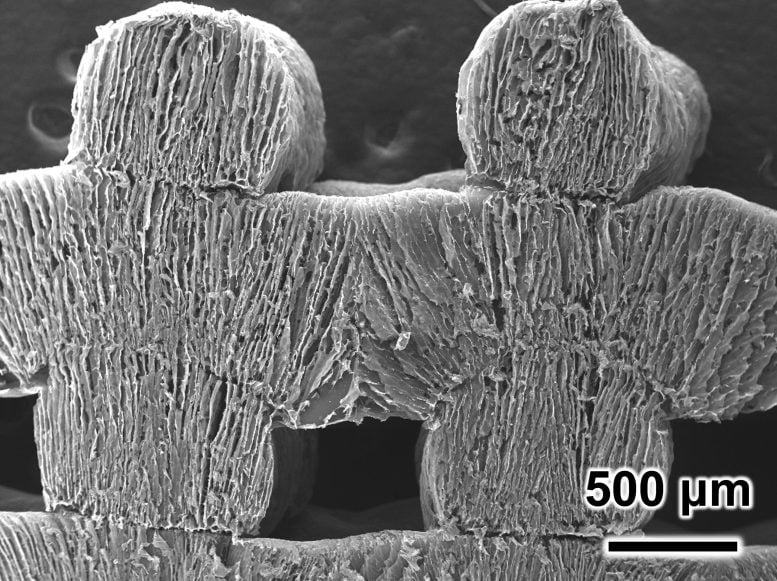Researchers have developed a 3D-printed aerogel materials that makes use of daylight to transform seawater into consuming water. The sponge-like construction comprises microscopic vertical channels that allow environment friendly water evaporation at varied scales. The staff revealed their findings in ACS Vitality Letters.

The fabric is created utilizing a paste containing carbon nanotubes and cellulose nanofibers, which is 3D-printed onto a frozen floor. This course of varieties evenly distributed vertical holes roughly 20 micrometers extensive all through the construction. Testing confirmed that bigger items maintained the identical evaporation effectivity as smaller ones, addressing a standard scaling drawback with earlier aerogel designs.
In out of doors testing, the system consisted of the aerogel materials positioned in seawater and coated with a clear plastic cowl. Daylight heated the fabric’s floor, inflicting water to evaporate whereas leaving salt behind. The vapor condensed on the plastic cowl and dripped into a group container under.


The take a look at setup produced roughly 3 tablespoons of potable water after 6 hours of pure daylight publicity. “Our aerogel permits full-capacity desalination at any dimension,” stated researcher Xi Shen, “which offers a easy, scalable resolution for energy-free desalination to provide clear water.” The system operates with out electrical energy or advanced infrastructure, utilizing solely photo voltaic power for the desalination course of.
Supply: scitechdaily.com

